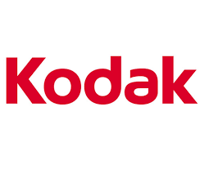Retail and institutional investors dread when publicly-traded companies face the threat of delisting. But is all hope really lost when a stock is delisted? Let’s dive in and find out.
There’s a smorgasbord of benefits available for publicly-listed companies, especially those on major stock exchanges like the New York Stock Exchange (NYSE) and Nasdaq Stock Market (Nasdaq).
However, the most important benefit would be access to more capital. Expansions, acquisitions, and the like are easier to execute thereafter.
On the other hand, getting listed on a stock exchange isn’t a one-way ticket. There are rules that an organisation needs to abide by in order to stay listed. As you might expect, getting delisted doesn’t leave a great impression on a firm’s clients and investors.
Public image is one thing, but what happens to investors if an organisation faces the threat of being delisted? If they’re currently holding onto its shares, do they still own them? Is it possible for these shares to be sold? And if so, what’s the right platform to do so?
Read on and discover what happens when a stock is delisted from an exchange and whether investors will lose the capital that they’ve put in.
- What are the requirements to remain listed on a stock exchange?
- What happens when a stock is delisted?
- What can companies do to avoid getting delisted?
- Which prominent companies have delisted?
- Conclusion
Start managing and saving money like a pro with SingSaver’s weekly financial roundups! We dole out easy-to-follow money-saving tips, the latest financial trends and the hottest promotions every week, right into your inbox. This is one mailer you don’t want to miss.
Sign up today to receive our exclusive free investing guide for beginners!
What are the requirements to remain listed on a stock exchange?
Unfortunately, this isn’t clear-cut because every stock exchange in the world has its own set of rules and regulations for businesses to remain listed. And that’s not including the initial listing, which has a different set of rules altogether.
For example, the NYSE has different requirements for U.S companies and non-U.S companies. Ditto for Nasdaq, which has three distinct tiers to accommodate companies that have varying market capitalisations instead.
However, both stock exchanges implement a US$1 share price that companies need to maintain as long as they’re publicly-listed. Should their share prices dip below that, regulators will flag them up for non-compliance.
Thereafter, they have a certain amount of time to regain compliance before they’re cut from the stock exchange.
Alternatively, there are stock exchanges that do not implement a minimum share price in order for a company to remain publicly listed. Take the Singapore Exchange (SGX) for example, where it removed the S$0.20 minimum share price rule in 2020.
However, a firm does need to be consistently profitable in order to remain publicly listed.
Likewise for the Hong Kong Stock Exchange (HKEX), where the rules state that a company needs to ‘have a sufficient level of operations or sufficient assets to warrant the continued listing of the issuer’s securities’.
Therefore, it’s crucial to keep abreast of the stocks that you’re holding onto, especially during a black swan event like a global financial crisis or extended bear market.
What happens when a stock is delisted?
Although a company can be delisted after falling short of a stock exchange’s rules and regulations, they can delist themselves voluntarily too. What happens after the former occurs isn’t ideal for retail and institutional investors, but is straightforward nonetheless.
The delisted company’s stocks are still yours to keep and will continue to be traded. However, this will now be done through the Over-the-Counter (OTC) market rather than an established stock exchange. There are several risks inherent to this, with accessibility being the chief concern.
That’s because not all online brokerages allow users to trade stocks on the OTC market. Only a handful in Singapore have this feature, including Tiger Brokers and Interactive Brokers.
This means that you’ll need to jump through several hoops to liquidate your holdings if a company you’re invested in ends up getting delisted.
Speaking about liquidity, delisted stocks don’t have a lot of it. The bid/ask price spreads can be wide and you might have a harder time selling off your holdings. In this instance, investors would most likely lose money as the company is in grave financial danger by this point.
As for a company voluntarily delisting, there are several scenarios that can cause this. The first would be the company going private after an individual or organisation buys out the majority of its shares.
Often, investors are in luck as they get to make a profit from said individual or organisation valuing the company’s shares more than the stock exchange’s participants.
The second scenario would be a merger or acquisition. In this event, investors stand to gain as well because the acquired company’s stocks in their portfolio will be converted to either cash, the acquirer’s stocks, or a combination of both.
For example, LinkedIn’s shareholders received US$196 for every share they held when Microsoft acquired the professional social networking service in 2016.
What can companies do to avoid getting delisted?
A company getting delisted from a stock exchange due to a merger, acquisition, or privatisation creates more value for shareholders and improves the organisation’s prospects. Often, they’d be more than willing to delist from the stock exchange that they’re on.
Companies falling afoul of a stock exchange’s regulations are the ones that require a solution to avoid getting delisted. Fortunately, there are several measures that can be used to stem the bleeding, including:
1. A reverse stock split
A company performs a reverse stock split in order to boost the value of its share prices above the minimum that the bourse has set. Essentially, the number of shares in circulation are reduced, which bumps prices up proportionally.
For example, an investor holding on to 1,000 shares of Company X at S$1 each would have that converted into 100 shares worth S$10 each if a 1-10 reverse stock split was performed.
However, this is a temporary solution as it doesn’t change the company’s fundamentals. It encourages an inflow of capital as more retail and institutional investors would put the stock on their watchlist, but the company itself has to seriously rethink its business model and processes.
2. A share buyback
On the other hand, companies can initiate a share buyback. As the name suggests, a share buyback refers to a business purchasing a number of its own shares from shareholders.
Logistically, this is easier as it does not require approval from the firm’s shareholders and comes with a host of other perks.
For companies that are running the risk of getting delisted, a share buyback has the same effect as a reverse stock split in increasing share prices.
What’s more, its earnings-per-share ratio is boosted, which provides another reason for investors to purchase the firm’s stocks and keep it listed on the bourse.
However, if a business is financially shaky, this wouldn’t be a viable option. For investors, be wary if a company is taking on debt just to finance a share buyback, especially if it is a small-cap one.
3. Improve the company’s prospects
The last tactic that an organisation can employ to attract investors is straightforward, but easier said than done. Improving its business prospects definitely boosts share prices accordingly, but it’s not an instant shot in the arm.
For example, pursuing new business partnerships or implementing cost-cutting measures will require a period of time for planning and execution.
From there, more time is needed before the fruits of a company’s labour can be seen. Investors and stock exchanges alike might not have the patience to see if everything works out well.
Furthermore, an organisation needs to be fundamentally strong in order to attract business partners and lucrative contracts. If a publicly-listed company’s share prices have reached the point where it runs the risk of delisting, its foundations are, more often than not, weak.
Which prominent companies have delisted?
No business is immune to delisting, even if it is a household name or industry leader. Entire sectors can be disrupted by the emergence of innovative companies or technologies.
On the flip side, industry giants can choose to go private for their own reasons too. Here are several prominent examples of companies delisting.
1. BreadTalk Group: Delisted from the SGX on 5 June 2020
The global F&B industry took a massive beating in 2020 and establishments in Singapore weren’t spared either. However, the owner of the eponymous bakery chain and other F&B concepts was already struggling prior to the COVID-19 outbreak.
Year-on-year profit margins weren’t on track to meet targets that the Group set and the novel coronavirus sealed the deal.
The BreadTalk Group ended up getting acquired by BTG Holding Company, a consortium formed by BreadTalk’s founder George Quek, his wife Katherine Lee, and Minor International.
Fortunately, the now-private company is still very much alive and is set to heave a sigh of relief as Singapore navigates its way into the new normal.
Before its delisting, BreadTalk Group was trading at S$0.77 per share.

2. M1 Limited: Delisted from the SGX on 24 April 2019
The telecommunications industry in Singapore is highly competitive these days, especially after MVNOs muscled their way in to disrupt the incumbents Singtel, StarHub, and M1. After M1’s share prices hit a high of S$3.99 in March 2015, things unfortunately started going downhill.
Less than four years later, the telco had to be bought out by Keppel Corp and Singapore Press Holdings after its share prices dropped by more than 45%. M1 is still operating as a privately held company today.
And 5G getting rolled out progressively across the Lion City means that there’s an avenue for it to grow.
Before getting delisted in April 2019, M1 Limited was trading at S$2.05 per share.

3. Eastman Kodak: Delisted from the NYSE on 19 January 2012
The brand Kodak needs no introduction to film photography buffs. Unfortunately, it could not pivot quickly enough to producing digital photography products as consumer and professional preferences started to change from the late-1990s onward.
Film photography is far from dead today, but it’s no longer the ubiquitous way for pictures to be captured.
Kodak’s inertia resulted in an eventual bankruptcy and delisting from the NYSE on 19 January 2012. Fortunately, it managed to reorganise itself and relist on the NYSE in September a year later with a new ticker and share price that’s well above the minimum of US$1.
As of October 2021, the company is trading at an average of US$7 and has diversified well beyond photography. How far beyond, you ask? How about having a pharmaceuticals unit that received approval in 2020.

Conclusion
There are a myriad reasons why a stock would be delisted from an exchange. The company might find that it’s severely undervalued or it might be acquired by a larger firm. These are reasons for shareholders to celebrate and retool their investment portfolio.
Conversely, said company might be struggling to stay afloat amid a challenging business environment or after a global crisis. Investors wouldn’t be too amused in this case.
Therefore, delisting from a stock exchange doesn’t always mean doom and gloom. Additionally, there are several measures that a company can take in order to stave off the threat of delisting, so don’t fret if a stock you’re investing in is flagged for non-compliance.
However, nothing beats a business that is run properly at the end of the day. If you spot something fishy while researching a stock or even while you have it in your portfolio, you might want to dig deeper before all hell breaks loose.
Read these next:
Employee’s Insurance Benefits: What Should Your Company Be Giving You?
Starting Your Company in Singapore: A Guide to All the Costs
Have Enough Money To Jet Off to Space? 5 Signs You’re Ready For Priority Banking
Best Business Credit Cards In Singapore (2021)
Best Brokerage Accounts To Start Your Investment Journey In Singapore
Similar articles
Why Is Sea Limited Stock Dropping And What Should Investors Do?
How To Score Big When Investing In Your Favourite, Listed Football Club
Elon Musk’s US$44 Billion Twitter Bid: What Does This Mean For Twitter And Should Investors Be Worried?
Straits Times Index: Top Blue-Chip Companies (And What They Do)
Grab’s IPO: Going Public With A SPAC vs IPO — What’s The Difference?
Alphabet Stock Split: Is It Good News For Investors?
5 Dividend Stocks to Watch in 2022 (And What You Should Know Before Investing in Them)
A Full Guide To StarHub’s Share Price & Dividends











